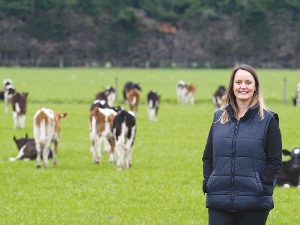Prices came back in last week’s Global Dairy Trade (GDT) auction after an extraordinary rise earlier this month.
Hurrell says while New Zealand remains mostly sheltered, many countries have not seen the back end of Covid-19.
“There is resurgence of Covid in some parts of Europe,” he says.
Downward pressure on dairy prices is also coming from increased milk supply from Europe and the US – two major producers.
However, prices remain relatively high: whole milk powder (WMP) prices dropped 6.2% to US$4,083/metric tonne at last week’s auction after recording a whopping 20% rise the previous auction.
ASB economist Nat Keall expected the price correction and notes that prices for products remain very strong.
“Gains a fortnight ago were so enormous that WMP prices remain well north of US$4,000/MT,” Keall says.
RaboResearch senior dairy analyst Emma Higgins says last week’s GDT event was always going to be a test for the market, given how prices spiked in the first week of March.
“The additional GDT volumes were significant and so for average WMP prices to remain above the US$4,000/MT mark is a really good result, as too was the (small) price gain for SMP.
“We think that global supply and demand dynamics still lend themselves to supporting a strong milk price forecast,” says Higgins.
Higgins expects WMP prices to remain strong in the coming months.
“We think that the expensive cost of producing milk (and WMP) in China, overlaid with the complexity of global shipping disruptions, alongside modest global milk production growth, lends itself to elevated WMP prices over the coming months,” she says.
Keall agrees that aggressive Chinese purchases continue to fuel the strength in prices.
“As we’ve noted in recent commentaries, stockpiles in China haven’t kept pace with consumption, while food insecurity fears have continued to support demand.
“The auction a fortnight ago saw shipping disruption fears enter the mix as buyers rushed to secure product, bidding up prices in the process.
“That narrative remained evident this auction, with strong demand out of ‘North Asia’ continuing to price other regions out of the mix.”
However, Keall says there’s need for caution since WMP prices have moved much more dramatically than other products.
“This speaks to the fact that while underlying demand for dairy products remains high, shipping fears and the need to reliably secure product for crucial infant formula in the near term are influencing the figures.
“At a certain point, there remains the risk that China will have built sufficient stockpiles and start to take its foot off the accelerator. The timing of such a move remains highly uncertain, and the re-entry of other buyers into the market may help offset the price impact.”
Fonterra has reaffirmed its forecast farmgate milk price range of $7.30 - $7.90/kgMS and forecast normalised earnings guidance of 25-35c/share.
“Fortunately, we are in a position where, so far, New Zealand dairy is proving to be resilient in a Covid-19 world. It’s a staple in people’s diets around the world and demand is strong,” says Hurrell.
“The strong milk price is great for farmers. It’s good for New Zealand too – with a mid-point of $7.60/kgMS, it would see us contribute more than $11.5 billion to the New Zealand economy.”



















